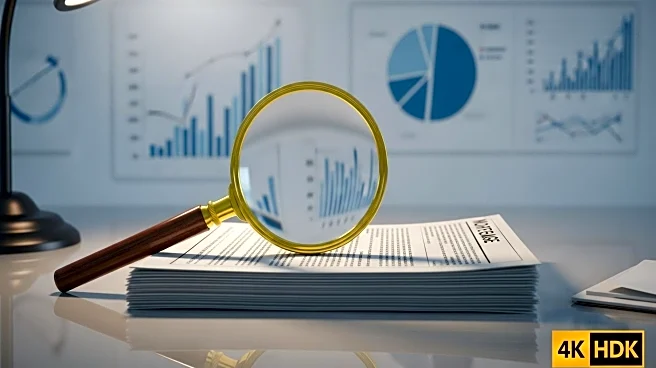What's Happening?
The Department of Justice (DOJ) has launched a criminal investigation into Federal Reserve Governor Lisa Cook, focusing on allegations of mortgage fraud. Subpoenas have been issued in Georgia and Michigan as part of the probe, which examines whether Cook falsely listed multiple properties as primary residences to secure favorable mortgage terms. The investigation follows a referral from Federal Housing Finance Agency Director Bill Pulte, who accused Cook of fraudulent activities prior to her appointment to the Federal Reserve in 2022. President Trump has cited these allegations in his recent attempt to remove Cook from her position, a move she is legally contesting.
Why It's Important?
This investigation into a high-ranking Federal Reserve official could have significant ramifications for the institution's credibility and governance. Allegations of financial misconduct at this level may undermine public trust in the Federal Reserve's leadership and decision-making processes. The case also highlights the broader issue of mortgage fraud and the importance of transparency and integrity in financial disclosures by public officials. President Trump's involvement adds a political dimension to the situation, potentially influencing public perception and policy discussions around the Federal Reserve's independence and accountability.
What's Next?
A grand jury in Atlanta is currently reviewing the evidence, and an indictment against Cook is considered likely. Cook's legal team is challenging President Trump's authority to remove her, arguing that any discrepancies in her mortgage applications were clerical errors. A U.S. District Judge is expected to rule on Cook's emergency request to block her termination. The outcome of this legal battle could set a precedent for the limits of presidential power over Federal Reserve appointments and the standards for financial disclosures by public officials.
Beyond the Headlines
The case raises questions about the ethical standards and oversight mechanisms in place for high-ranking financial officials. It also underscores the potential for political interference in independent institutions like the Federal Reserve. The investigation may prompt calls for stricter regulations and transparency requirements for public officials' financial dealings, aiming to prevent similar controversies in the future.










